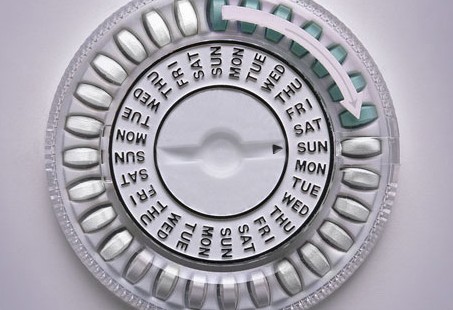
No prescription. No doctor’s exam. No insurance. Should birth control be sold over- the-counter (OTC) at your local pharmacy? That’s the latest suggestion from the American College of Obstetricians and Gynecologists (ACOG).
And, it seems insurance companies, Big Pharma and the government would be inclined to agree. After all, 50 percent of all pregnancies in the United States are unintended – a number that has remained steady for the past two decades – and as an OTC drug, the patient fronts all the costs, not your insurance, and Big Pharma makes all the money.
The suggestion is quite controversial. The debate lies in whether or not moving birth control over the counter would really improve accessibility and use and if this imposes added health risks on women. When the patient has to front all the costs, it is possible that many women will simply take their chances with pregnancy to save money, especially considering the majority of pill users are young and without deep pockets.
The arguments in favor of the reclassification of birth control state that many women struggle to afford a doctor’s visit or getting an appointment to avoid gaps in their pill cycle. Not a strong argument when you consider the Affordable Care Act, which passed this summer, has improved access to birth control, requiring employer insurance plans to cover contraception and the necessary doctor exams.
There are plenty more arguments against unregulated dispersal of birth control because although the intentions of the program are to reduce the number of unintended pregnancies, the health-risks of the pill are more significant than most women realize – just this year, media headlines warned against the dangers of blood clots from using certain pill forms of birth control.
In general birth control has a long history of health risks, which is one reason it has and should remain a prescription requiring a doctor’s care. Birth control pills increase the risk of hypertension. A woman seeking birth control should have her blood pressure measured before going on the pill and continually monitored while on the pill. From the aspect of preventive health, fewer women would even reach out to their doctors for yearly, life-saving pap smears. Sadly, the motivation for these visits, for many women, is a refill of their birth control prescription.
Or, take into consideration the fact that each variety of birth control pill contains a different level of hormone – doctors prescribe a particular type to a patient based on the needs of each individual patient, after a thorough assessment. This is not a basic medication like allergy or cold medicine that is a one-size-fits-all product.
Not to mention, new research shows that some women respond differently than others to birth control pills – depending on their genetic makeup. Some women’s levels of sex-hormone binding globulin (the protein that binds sex hormones in the bloodstream) soar when on the birth control pill. These levels may stay elevated long after a woman has stopped the birth control pill, thus having a long term effect on a woman’s hormone balance.
Birth control pills are hormones. Hormones have a unique and profound effect on the body, which is why hormone therapy, in any form, should be carefully monitored by a trained physician. The impact of birth control pills can be positive, but it can also be dangerously negative, including increasing the risk of breast cancer with long term use, and increasing the risk of stroke and heart attack with short term use. With all that is at stake, it seems reckless to allow these medications to be available over the counter.
